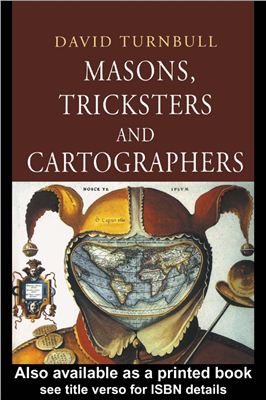Taylor & Francis, 2000 - 276 p.
In an eclectic and highly original study, Tubull brings together traditions as diverse as cathedral building, Micronesian navigation, cartography and turbulence research. He argues that all our differing ways of producing knowledge - including science - are messy, spatial and local. Every culture has its own ways of assembling local knowledge, thereby creating space thrugh the linking of people, practices and places. The spaces we inhabit and assemblages we work with are not as homogenous and coherent as our modeist perspectives have led us to believe - rather they are complex and heterogeneous motleys.
ISBN10: 9058230015 ISBN13: 9789058230010 (eng)
In an eclectic and highly original study, Tubull brings together traditions as diverse as cathedral building, Micronesian navigation, cartography and turbulence research. He argues that all our differing ways of producing knowledge - including science - are messy, spatial and local. Every culture has its own ways of assembling local knowledge, thereby creating space thrugh the linking of people, practices and places. The spaces we inhabit and assemblages we work with are not as homogenous and coherent as our modeist perspectives have led us to believe - rather they are complex and heterogeneous motleys.
ISBN10: 9058230015 ISBN13: 9789058230010 (eng)

